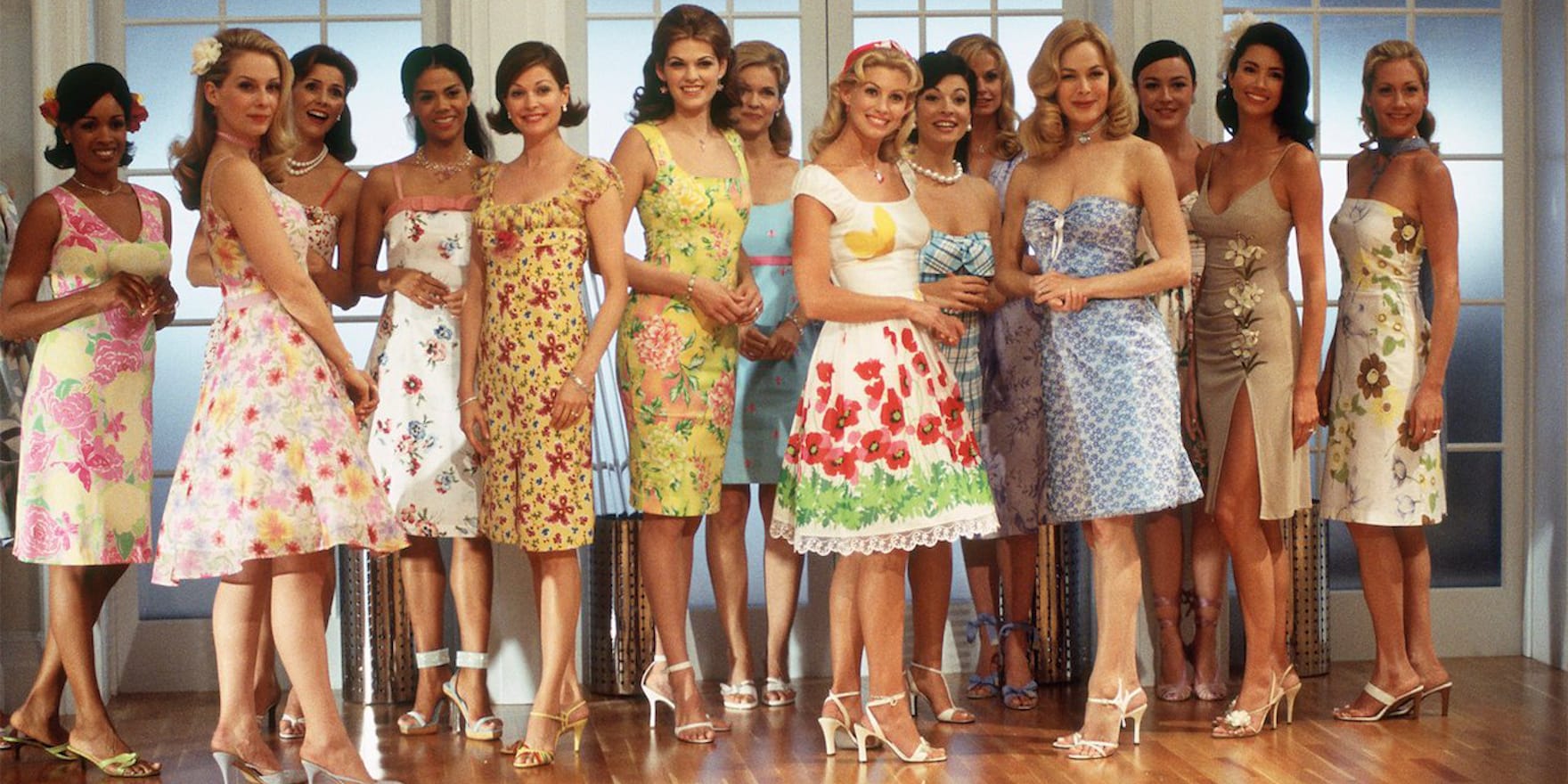Are remakes ever better than the original?

Plus: Is it better to be healthier or wealthier?
This is my Weekly Roundup — May 12th, 2024
Welcome to Weekly Roundup, where we explore captivating films, books, and stories that grabbed our attention this week.
Watches of the week
- Taxi (1998) by Luc Besson (Dir. Gérard Pirès) - 👍
- The Stepford Wives (2004) by Frank Oz - 👍
- The Sopranos - really? Why did we wait so long… 👍
Taxi by Luc Besson

Written by Luc Besson and produced under his guidance, Taxi and its four successive sequels hold their weight against other pillars of French comedic cinema. For the cinephile, Luc Besson should be a familiar name, having directed beloved classics like Leon the Professional (1994) and The Fifth Element (1997), two of my favorite movies. Obviously, if you know me, I was unfamiliar with either before I met V—my partner-in-film and cinematic soulmate. I remember early on rather embarrassingly stating that I felt I had “seen everything worth watching on Netflix” around her and a few other co-workers who were drastically cooler than me (you know who you are), only to realize that my movie knowledge at the time extended little further than the Marvel cinematic universe. But I digress.
Taxi's humor revolves around the unlikely partnership and mismatched chemistry of Daniel, a bold taxi driver, and Émilien, a bumbling yet dutiful cop. Together they find themselves on a mission to stop a gang of German bank robbers who, of course, drive solely Mercedes. I'm always struck with how smart the references of older, and especially foreign comedies are. Taxi was no exception. There were a couple of jokes that would have been lost on me if it weren't for V.
Beyond spawning four sequels, the Taxi franchise inspired an American adaptation starring Queen Latifah and Jimmy Fallon and a French-American television series, Taxi Brooklyn. While I haven’t seen either, the American film remake with Queen Latifah and Jimmy Fallon boasts a score of 9 on Rotten Tomatoes. Out of 100. I think I’ll take my subtitles and stick with the original.
The Stepford Wives by Frank Oz
A remake of a film based on a novel published in 1972, The Stepford Wives, directed by Frank Oz, is a wickedly satirical take on suburbia gone awry with more than a sprinkling of feminism.

Nicole Kidman takes the lead as Joanna Eberhart, a successful yet recently fired television executive whose life takes a turn after her husband convinces her to move the family away from New York to the idyllic town of Stepford. Her expressionless face and Manhattan black quickly stand out against the blonde beauties in pastel sundresses and hats who all share the same smile and robotic appeasement of their husband’s whims. Supporting performances from Matthew Broderick, Bette Midler, and Glenn Close round out the stellar ensemble.
While this remake of The Stepford Wives received mixed reviews and currently sports a measly 26% on Rotten Tomatoes, I found its humor and razor-sharp wit a great medium for the not-so-subtle social commentary. This begs the question—is this a classic case of a remake falling short of its source material? Or in the words of Rachel from Friends, was it merely: “U.S.A., not ready…”
Reads of the week
Europeans have more time, Americans more money. Which is better?
My suggested read of the week was actually a listen while on a run courtesy of the app Curio. A tragic forgotten free trial turned into a yearly subscription—I now take advantage of the voiceovers of the top articles from the most prominent publications daily. This is not an ad. As much as I adore all 104 of you, I don’t think I’ll get any marketing agencies knocking on my door anytime soon.
If you happen to have a Financial Times account, you can read it here.
Given this was a listen and not a read, please bear with me as I try to remember everything covered. The premise, as you can easily surmise from the title, is that our friends across the pond have more time but less money than us in the US. Is this good, bad, or merely a cultural preference?
Here are the facts that I remember:
- In the US, we work about one hour more daily than the average European. We also have fewer paid holidays and vacation time, which could be a factor in the above statement.
- On average, US workers are more productive, corresponding to higher wages.
- There are a few European countries with higher average wages, though, mainly from the Nordic region.
- As economies have advanced in the post-industrialization world, Europeans have tended to leverage increased productivity for more free time, whereas the US has chosen more wealth.
- Average work hours have dipped—driven by the young workforce (Gen Z and Millennials) and, interestingly, fathers with young children.
- Longevity. American average lifespan is 77, where many EU countries are as high as 83.
I think there was an Emily in Paris quote that sums up these differences quite simply:
"You Live To Work. We Work To Live." - Luc

Taking this into consideration, is one model better than the other? If I’m honest, I find it hard to see too many faults in the European way. Work less, more vacation and leisure time, and live longer? Seems like a win-win situation. If all your needs are met financially, what better to spend your money on than free time? There must be a trade-off. Is there less motivation to pass money on to your children and create “generational wealth”? I know it can’t be social programs. The US pales in comparison there. Is it retirement age? Here, the US and Europe actually share common ground, with most countries having an effective retirement age of 65.
From personal experience, I appreciate the increased leisure time that remote/hybrid work has provided. Besides the occasional ribbing from friends and family members about how easy we have it, the ability to do my work from home has opened up many other doors. In the most basic sense of time saved, the two hours I get back daily from skipping the commute and a pared-down morning routine are replaced with a daily run and home cooking. We’ve bid adieu to DoorDash and cook fresher, healthier food every day. I commend those with the discipline to come home and cook after spending all day in the office.
Even this project of mine would have been a struggle to upkeep after surviving a daily commute on Fury Road. I fear, if anything, I would have traded movie reviews and musings for topics a little more ominous…
I am genuinely curious to hear people’s opinions. Should you work for more wealth or more leisure? What is the cutoff? Is there a point where you can start prioritizing free time over the corporate ladder? Or is that not part of the American dream?
Reader Recommendations
Now, I want to hear from you! What movies, books, or articles captured your attention this week? Share your top picks in the comments below; your insights might just lead someone to their next favorite film or book.
Stay tuned until next week!




Comments ()